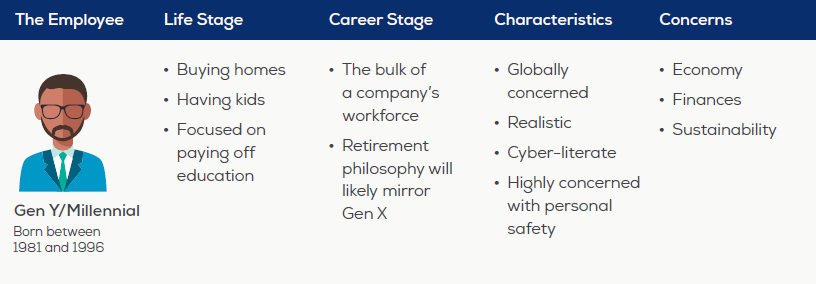4 key insights into Millennials’ health care decisions
Every generation carries its own health care needs and service expectations. As Millennials become the largest generation in the workforce, it’s a good idea to understand their health care attitudes and preferences. By doing so, you’ll be able to create benefit designs that satisfy your current employees and appeal to the top talents in the next generation of workers.
Here are four key insights that will help you understand what drives Millennials’ health care decisions:
1. Pricing: Cost concerns lead to a preference for lower premiums
Cost is the top concern for many Millennials when selecting health insurance. We’ve talked about the financial considerations of each generation and how those factors influence their health insurance choices, but in general this generation prefers high-deductible plans. While these plans do come with high out-of-pocket costs for unexpected or emergency services, that’s a risk many Millennials are willing to take. The lower monthly premiums these plans offer are more affordable and easier to plan a budget around.
2. Coverage: Younger generations prioritize easy access to care
Millennials will often turn to1 urgent care as their first point of care—largely due to convenience. This group may seek plans where urgent care coverage is favorable, and look for lower-cost, easy-access options like telemedicine.This group, unfortunately, is also more apt2 to forego needed care, perhaps due to inconvenience or cost. Offering plans that make accessing these services more feasible and more attractive can help turn this trend around, leading to better long-term health care results for employees and, ultimately, your company’s bottom line.

Source: The generations defined, Pew Research Center (April 11, 2018)
3. Providers: Transparency is key—looking for convenience but still seeking provider relationship
When it comes to provider preferences, Millennials often make decisions by referencing multiple sources, including online research and their online and offline social networks. Convenience is also a factor, but most are seeking a personal relationship with their provider of choice. They often access health care through their primary care provider, and become loyal to providers they trust. But, a negative experience can damage that trust and cause them to search for care elsewhere.
4. Engagement: Technology, personalization, and face-to-face options
Contrary to popular belief, Millennials aren’t seeking digital-only services, but instead place a lot of importance on health service relationships and personalization. Millennials often prefer3 a personal connection and dealing with a human when it comes to their health care decisions and services. Millennials are also accustomed4 to personalization—a blanket engagement program may not suffice. They expect targeted information and content that is specific to their personal situation.Millennials are joining the workforce at a time when health care consumerism is at an all-time high5. These new models, with high-deductible plans, network-based plans, and health spending accounts are the only models they know. It’s important that you and your insurance carrier help employees understand all their options. You also want to ensure that the benefits you select are optimal for an employee’s situation and needs. This will drive good health care decisions for long-term results.
Overview
Overall, Millennials are highly cost-conscious and are careful to research benefits and providers before choosing a plan. While technology is often a plus for this group and contributes to better access to services, the personalization that technology offers is more important than providing digital-only services. After all, most are looking for a personal relationship with a PCP that they can trust with their health care decisions.
Understanding generational differences and attitudes toward health care and insurance like these can help your company more effectively compete in today’s tight talent marketplace. For key insights into other generations’ health care values, download the complete report: Maximizing your health benefit plans for a multi-generational workforce.
4 “The millennial expectation of health benefits.” Benefits Pro. (2016, May 17).
5 “How To Engage Millennials In Health Insurance.” InsuranceNewsNet.com. (2016, May 31).
